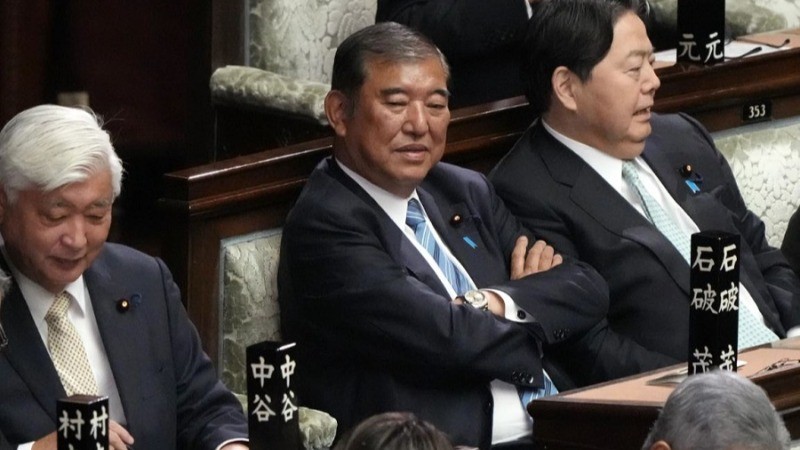
Japan’s parliament reelected Shigeru Ishiba as prime minister on Monday, following a significant loss for his governing coalition in the October 27 election.
Ishiba’s party, the Liberal Democratic Party (LDP), and its junior partner Komeito lost their majority in the 465-seat Lower House, the more influential chamber of Japan's two-house parliament. The loss came after voters expressed frustration over financial scandals involving Ishiba’s party and its slow response to the issues.
The special parliamentary session held on Monday was necessary to select a new leader within 30 days of the general election. Unlike previous elections, where the LDP leader was virtually guaranteed the role of prime minister, Ishiba faced a tough challenge, winning the vote against opposition leader Yoshihiko Noda with 221 votes to Noda's 160. This marked the first runoff in 30 years.
Although many of Ishiba’s Cabinet members will remain in their positions, three will need to be replaced due to losing their seats or being impacted by the election results.
Since the election loss, Ishiba has remained firm in his resolve, saying he is ready to work with additional coalition partners to restore stability and push his party’s policies forward. However, Noda, leader of the Constitutional Democratic Party of Japan, has attempted to form an opposition coalition but has not succeeded so far.
Ishiba faces significant challenges in the coming months, particularly in gaining the opposition’s consent for key policies, including the national budget and other important legislation.
Ishiba is also keeping a close eye on the growing conservative opposition, the Democratic Party for the People, which saw its seats multiply to 28 under the leadership of Yuichiro Tamaki. Tamaki, a Harvard-educated former Finance Ministry bureaucrat, attracted younger voters and low-income earners with his proposal to raise the tax-free income allowance and increase take-home wages. While he is not interested in forming a coalition with Ishiba’s party, he aims to use his growing influence to push for policy changes.
However, Tamaki’s political standing took a hit when he admitted to an extramarital affair exposed by a magazine, adding further uncertainty to Japan's political landscape.
As Ishiba's government prepares for upcoming ASEAN and Group of 20 summits, there is also the possibility of a meeting with U.S. President-elect Donald Trump on his return to Japan later this month.
North Korea Fires Short-Range Ballistic Missiles Ahead of U.S. Presidential Election
Japan Successfully Launches Defense Satellite with H3 Rocket
US, Japan, and South Korea Conduct Joint Air Drills After North Korea's Missile Launch